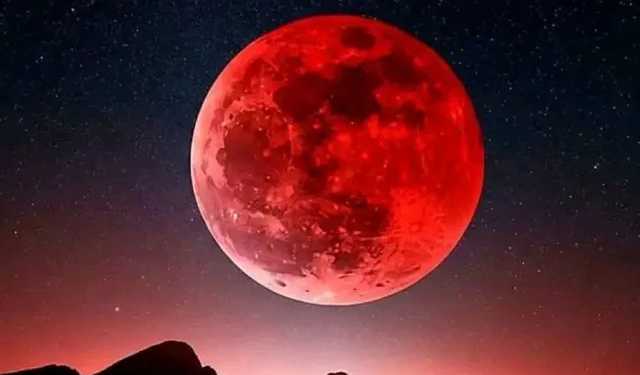Nigeria to witness a rare Blood Moon on Sunday, September 7, lasting 83 minutes. See exact time and best viewing spots.
Nigerians are set to witness a spectacular astronomical event this Sunday, September 7, as a total lunar eclipse, popularly called a “Blood Moon,” will grace the skies. The celestial show will begin around 8:00 PM West Africa Time (WAT) and last for about 83 minutes, turning the Moon into a glowing red orb.
According to scientists, this rare event will be visible across most of Africa, including Nigeria, Ghana, Cameroon, Gabon, Equatorial Guinea, Benin, Togo, Niger, Chad, and São Tomé and Príncipe. However, some westernmost regions may miss parts of the early phases because the Moon will rise closer to or during totality.
Why the Moon Turns Red
Experts explain that a lunar eclipse happens when the Sun, Earth, and Moon align, with Earth’s shadow covering the Moon. During this process, sunlight bends through the Earth’s atmosphere, scattering shorter wavelengths and allowing only red hues to reach the lunar surface—creating the mesmerizing “Blood Moon” effect.
NASA confirms that lunar eclipses come in three forms: total, partial, and penumbral. This particular eclipse will be total, offering stargazers in Africa, Europe, Asia, and parts of Australia a rare chance to experience the phenomenon.
ALSO READ: BREAKING: Outrage as Covenant University Bans Students From Cooking and Owning Phones [Why]
Safe Viewing for All
Unlike solar eclipses, which require protective gear, a lunar eclipse is completely safe to view with the naked eye. This makes it a family-friendly event, perfect for astronomy lovers and casual skywatchers alike.
For Nigerians, rural regions with minimal light pollution—such as Yobe and Borno States—will provide the clearest views of the Blood Moon.
A Night to Remember
With its deep crimson glow and long visibility window, this weekend’s Blood Moon promises to be an unforgettable moment for skywatchers across Nigeria and West Africa. Scientists encourage the public to step outside, look up, and enjoy one of nature’s most awe-inspiring spectacles.


